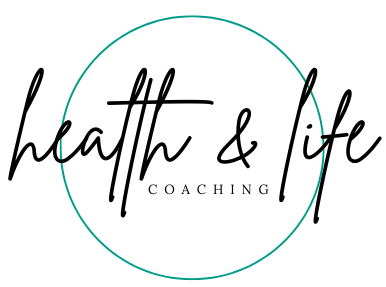In my 8.5 years of coaching individuals on their health journeys, I've frequently encountered a phrase that often comes laden with guilt: "I cheated."
This phrase typically precedes a detailed account of indulging in food or drink that falls outside their nutritional plan and often it isn't an unhealthy choice! Just not on their plan for themselves nutritionally.
As a health and life coach, I encourage my clients to replace the word "cheat" with "choice."
Why is this shift so crucial? The term "cheating" carries significant emotional weight; it evokes feelings of shame and embarrassment. Think about it: if we discover that our children cheated on a test, we don’t applaud this behavior. Instead, we recognize it as something that reflects poorly on their character. It’s a behavior we want to correct and guide them away from.
Similarly, when it comes to our health and nutritional decisions, labeling an indulgence as a “cheat” can lead to negative self-perceptions and judgment.
But what if we could shift our perspective? Often, referring to a “cheat day” serves as a mental loophole for actions we don’t feel proud of.
I invite my clients to consider this:
How often do we use the word "cheat" as a way to excuse our actions?
Are we truly acknowledging our choices, or are we hiding behind the term "cheat" to avoid taking responsibility for our decisions?
To help my clients make this transformative shift, I introduce them to the concept of choice.
Every day, we are faced with countless choices:
What to wear?
How to spend our time?
How to respond to others?
What to eat when hunger strikes?
Each of these decisions reflects our values and priorities. When individuals replace "cheat" with "choice," they empower themselves to act from a place of intention and self-awareness. They can ask themselves questions like:
"What do I want to create in my life?"
"How do I want to nourish my body today?"
"Am I choosing this food because it aligns with my goals, or am I simply reacting to temptation or emotions?"
In that moment, they have the option to indulge in something off their plan, but they also have the option to say, “No thank you, not right now.”
This conscious decision-making process fosters a sense of control and agency over one’s health journey.
Consider this:
How does it feel to think of your food choices as empowering rather than shameful?
What might change in your mindset and behavior if you approached each meal with curiosity and intention instead of guilt?
This simple dialogue can profoundly transform one's relationship with themselves and with food. It has the power to dismantle feelings of shame, address underlying issues around emotional eating, and foster awareness of emotions and mindset.
Call to Action: I challenge you to start this week by consciously replacing the word "cheat" with "choice" in your own life. Reflect on your decisions surrounding food and health. Ask yourself: What choices serve my well-being? How can I approach my meals with intention and self-compassion?
Share your experiences in the comments below or reach out to me directly—I’d love to hear your thoughts! Together, let’s cultivate a healthier relationship with food, one choice at a time.
- lara@healthandlifecoachingllc.com
- Mon - Fri 9:00am to 5:00pm
Blog
Blog - Latest Articles
- Glucose Awakening May 4 - 31 04 April 2025
- Julia's story of hope and possibility! 21 February 2025
- Overwhelm and Burnout 21 February 2025
- Spring into Savings! 21 February 2025
- Cheating vs. Choice: A Perspective Shift for your Health Journey 07 February 2025
- Protein - SO MUCH MORE than Muscles! 22 January 2025
- GLP-1 Naturally 22 January 2025
- 4 Powerful Questions That Will Change Your Life 22 January 2025
- We are HOPE Givers! 22 January 2025
- Shrimp Scampi 22 January 2025
Services for You






Subscribe
Report
My comments